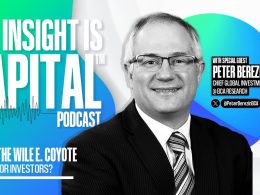by Mawer Investment Management, via The Art of Boring Blog
We have many fans of Sherlock Holmes within our research team. Aside from Holmes being a brilliantly contrived character—his genius intellect made that much more fascinating by failings like a cocaine addiction—the tales always offer a good lesson.
Take, for example, Silver Blaze, a story in which Holmes has a legendary conversation with the bumbling Scotland Yard Detective Gregory:
Gregory: Is there any other point to which you would wish to draw my attention?
Holmes: To the curious incident of the dog in the night-time.
Gregory: The dog did nothing in the night-time.
Holmes: That was the curious incident.
I found myself thinking about this passage recently in our weekly research meeting. My colleague Karan had just come from South Africa and was sharing some insights from his trip. At one point, he mentioned two things which got my attention. First, he noted that South African unemployment is very high – above 20%. He also noted that wage inflation in South Africa is greater than the broad level of inflation in the economy.
Now this juxtaposition struck me as strange. How could it be that there are so many people unemployed in South Africa and yet there is still wage pressure? Given the relationship that exists between wages and employment, wage pressure wouldn’t be expected to occur unless there was very little slack in the labour market. During the meeting I noted how bizarre it was to see this conflicting evidence.
My comment set the stage for an interesting discussion by the team around the number of potential reasons why this inconsistency could exist. One hypothesis held that, given the significant presence of unions in South Africa, it’s possible they are putting significant pressure on businesses to raise wages (e.g., South African coal producers and the Academics Union and the Employees Union). Another hypothesis focused on the shortage of skilled labour in the country: while it may seem like there is a large pool of available labour, given the shortage of skilled labour, the actual number of workers could be much more constrained. This would result in wage pressure as businesses compete for what skilled labour exists. And we also discussed how the various methodologies of recording unemployment could skew results.
Our conversation is notable because it highlights an important reminder for investors: investment insights are not usually obvious right away. Often we arrive at them because we have followed a scent. Indeed, we are frequently alerted of a potential insight, not because it is staring us right in the face, but because we dug deeper into some subtle inconsistency. Great discoveries are sometimes arrived at because something didn’t initially add up.
This is worth mentioning because it is a learned behaviour to pursue a scent. A lot of the time, scientists (and investors) will stumble on some insight, not because of their inherent genius, but because of persistent curiosity.
There are two take-aways here. The first is to be continuously on the lookout for inconsistencies. It can be easy to fall prey to confirmation bias and only look for evidence that supports your existing narratives. So be on the lookout for the strange flags! (One reason we are such big advocates of completing forensic accounting exercises on companies is that digging into data is a great way to uncover such flags and reduce the reliance on the narrative provided by management teams.)
The second take-away is to always follow the scent. In our experience, this is not something that comes naturally to most people (other than the very scientifically bent). But it’s a habit virtually anyone can acquire over time—and it is one that reaps rewards.
It pays to pursue the inconsistencies.
This post was originally published at Mawer Investment Management














